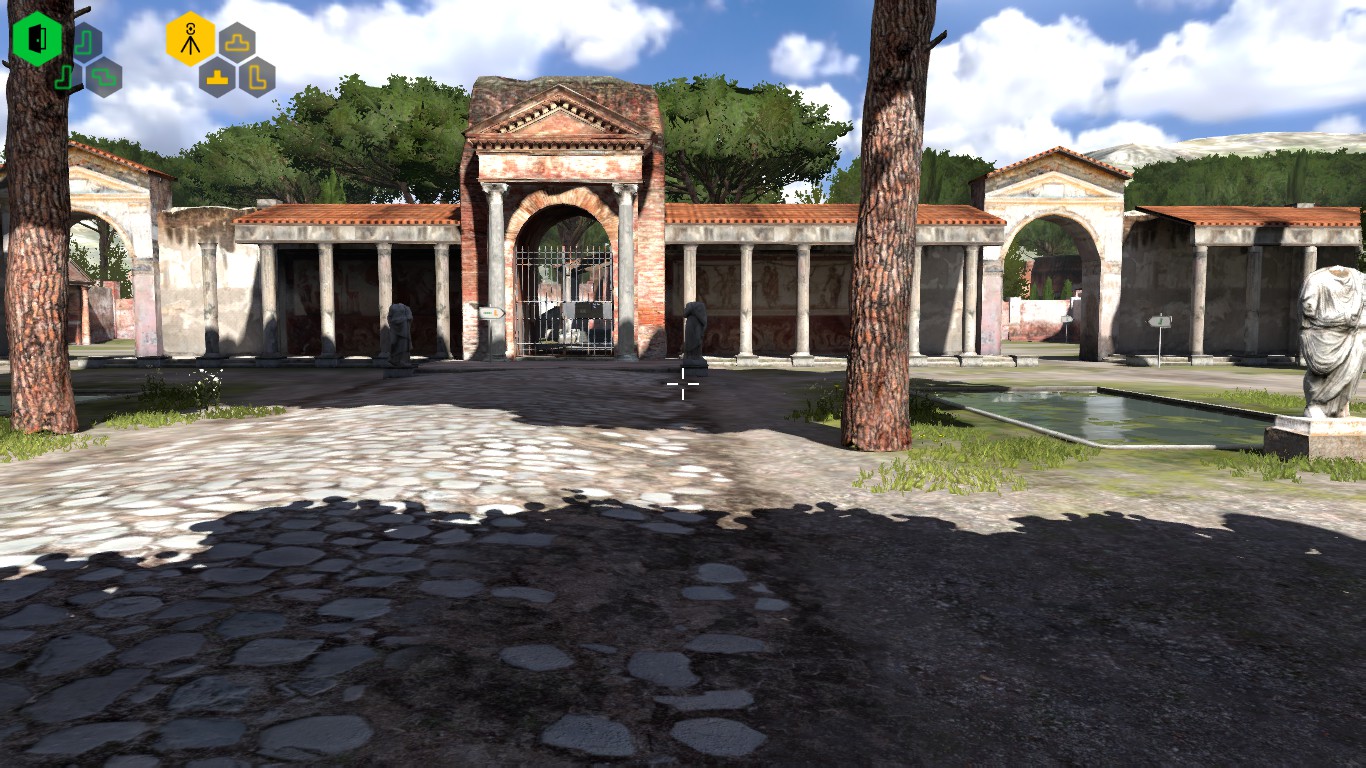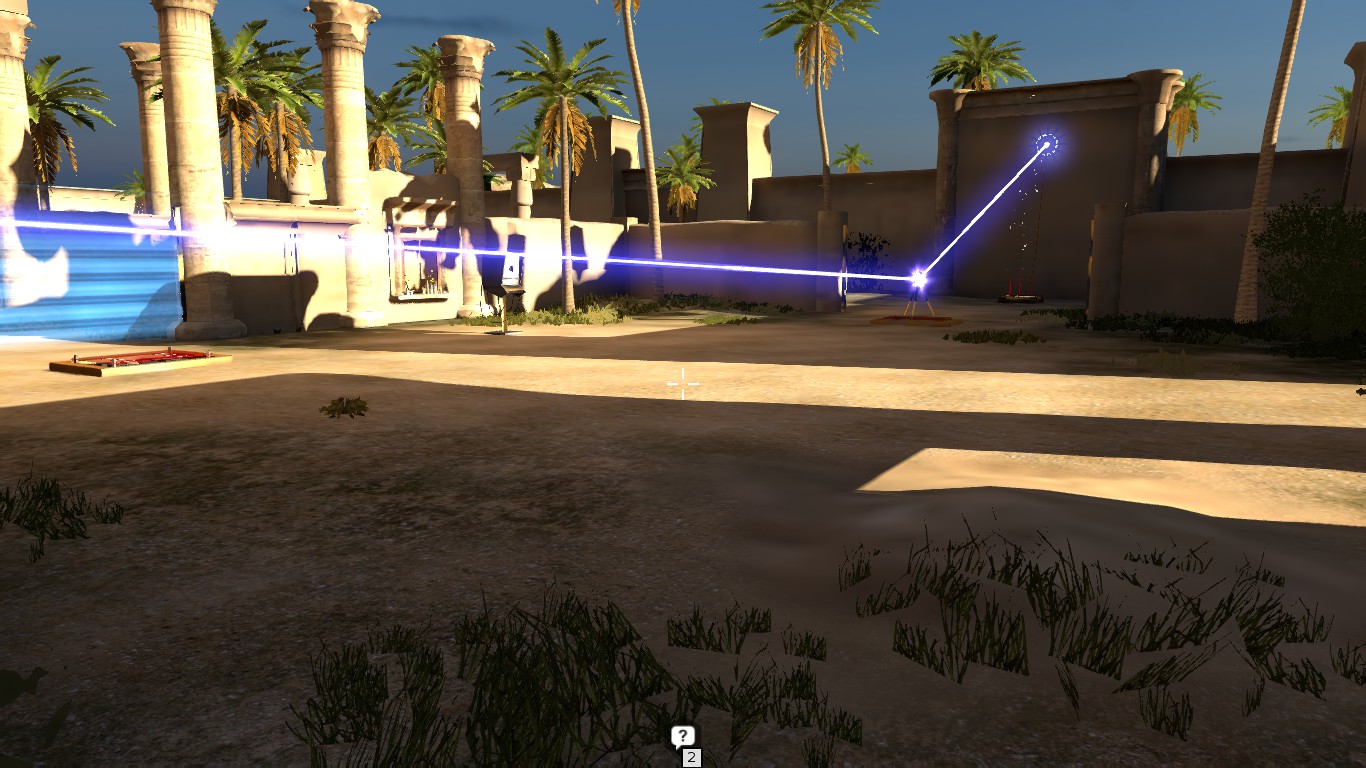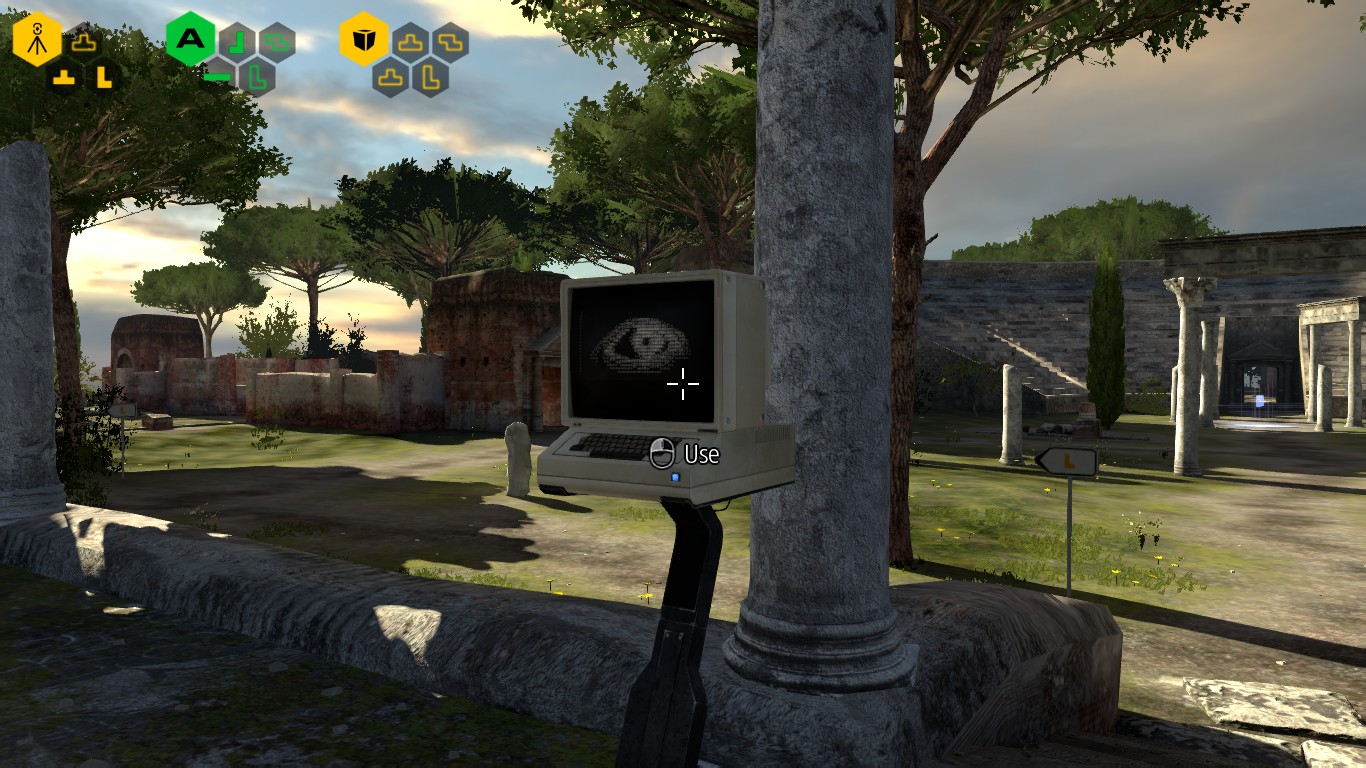Thomas Fitzpatrick McAllister’s life was the very essence of boring and uneventful, to the extent that even his goldfish, who up until recently had always been a veritable fountain of excitement, had taken up the hobby of listening to dial tones while staring listlessly at the wall. It wasn’t even a particularly interesting wall, though it must be noted that it was painted a rather vibrant shade of ecru, and was quite possibly the most vibrant shade of anything in the entire apartment. Though Tom never entertained guests, whenever a plumber or handyman happened to complement the ecru wall, Tom was quick to point out that it had been that color when he moved in, and that the previous residents had probably been wild, uninhibited hippies who had bought the paint in the middle of a psychedelic trip.
Though his life had consisted of undressed salads, unscented deodorant, and a vast variety of other un-things for as long as he could remember (which was nearly everything since his traumatic fourth birthday, when some well-meaning but ill-informed aunt had attempted to give him a box of crayons), his comfortably dull, quiet life would soon be violently thrust into a world of excitement. And not a moment too soon, or this might have been an incredibly uninteresting story.
The morning began with a sunrise, as mornings tend to do, though Tom remained sound asleep in his matching gray pajamas and his soft (but not too soft) beige comforter, unaware of the beautiful swaths of colors that existed just beyond his window. He awoke at precisely seven o’clock to the unmelodic beeping of his alarm clock. He showered, dressed in a gray suit and grayer tie, and ate a balanced breakfast of plain yogurt and off-brand oat rings, milk on the side.
After thoroughly washing his dishes with unscented dish detergent and taking a plethora of unexciting vitamins, Tom left his apartment at seven forty-five and arrived in the lobby of his building at just the right time to casually bump into a woman who perplexed and intrigued him in equal amounts.
Her name, if her mailbox was to be trusted, was “Wendiie,” spelled with two I’s and an E in place of the traditional, far less ridiculous Y. A peculiar name with a nonstandard spelling that made Tom wonder about the mental state of her parents. And yet the name fit her so impeccably well that he didn’t particularly mind.
The woman must have been a rainbow in a former life, for that was the only explanation for the vivid, haphazard colors she wore with such abandon. Her flowing clothes were so loud that they competed for attention with her jangling bracelets and off-key humming. She never wore the same outfit twice, and often completed the ensemble with a hat embellished with the face of a cartoon character. A different hat with a different character every day. He wondered where she stored them all.
Tom found her enchanting, and he choreographed his day around her schedule in the hopes of catching a fleeting glimpse of the variegated specter. He wasn’t attracted to her so much as flummoxed by her very existence. It wasn’t very often that one met a person so completely one’s opposite, and he sought to know everything about her. What did she eat for breakfast, and was it as intriguing as her knitted shawl with the multicolored pom-poms?
She said nothing as she hurried out the lobby door, carrying a large sequined bag filled with endless mystery. Where was she going? Why was she going there? Did she sort her books by title or by author’s name? She probably didn’t sort them at all, the wild rebel, and left them scattered about in piles on the floor while her bookshelves were filled with… with what? Tom tried to think of the most outrageous, non-book item that one could put on a bookshelf, and decided upon whimsical sculptures of dolphins wearing hats.
Why they wore hats and how they kept the hats secured on their heads while swimming through the ocean, he did not know. For a moment he entertained the possibility that they might use chin straps, until he came to his senses and remembered that dolphins did not have chins.
His mind full of unsolvable mysteries that would fuel him for the day, Tom left for his uneventful job as a lawn growth analyst, where he would sit for eight hours in a small room lit by ultraviolet lights, not only to watch grass grow but to take exhaustive notes in minute detail about the speed at which it did so. It was a menial job which he thoroughly enjoyed, and on any other day he would have boarded bus number four at precisely seven fifty, sat in his regular aisle seat three rows back on the left, and arrived at the large, brown building exactly sixteen minutes before nine o’clock.
This day was different, and Tom knew this the instant he saw a man with a very large tortoise. Surely tortoises were not allowed on public transportation, and it did not wear an orange vest signifying it as an emotional support tortoise. Tom almost walked right back off the bus again at this cavalier lack of rule following, but then he saw the seat beside his. Instead of the quiet, older gentleman with the large glasses, beside whom Tom had ridden wordlessly for five years and seven months, the window seat three rows back on the left was occupied by a refreshing ray of prismatic light.
Tom sat down and secured his seatbelt as the bus lurched into motion. Wendiie glanced at him with a sort of impersonal pleasantness, and he realized that someone as gray and precise as he would be of little interest to someone as colorful and whimsical as she. He wanted to talk to her, to speak of philosophy and poetry and ask her why she had that purple streak in her hair, but his mouth went dry and his mind went blank, and he could only manage a weak “Hello.”
Wendiie smiled, a spark of recognition lighting up her eyes that were the color of something very, incredibly blue that Tom had seen before but could not name at the moment. Possibly a poisonous frog or the sky over a tropical island. “You live in my building, don’t you?”
Tom nodded, and anything he was about to say left his mind as Wendiie’s oversized bag began to stir. After a moment, a furry little face peeked out and gave an irritated meow. He stared at it for a moment, the looked back to Wendiie. “You have a cat in your bag,” he informed her, in case she wasn’t aware.
“I do.” She put a finger to her painted lips as a laugh escaped them. “She isn’t allowed on the bus, but I won’t tell it you won’t.”
In general, Tom felt about cats the way he felt about most animals. That is to say, it was nice that they existed but he wasn’t wildly enthusiastic about having them in his home (he made an exception for the goldfish, as it had been his mother’s and the dog pound had refused to take it). That being said, for an animal that did its business in a sandbox and probably had a penchant for leaving disemboweled rodents around the house, he supposed this cat looked like a respectable enough cat. It was gray, and Tom liked that.
On a whim, Tom reached out to pet the cat, thus marking both the first time he had pet a cat and the first time he had done anything on a whim. He found it was not an unpleasant experience, and considered the possibility of doing it again at some point in the future.
The irony of planning to do something on a whim was lost on Tom, but it would soon become irrelevant. Neither Tom nor any of the other passengers on the bus—not the mother and child, the peculiar man carrying the rather large tortoise, nor Wendiie herself—had even the slightest hint of a clue that, at that very moment, bus number four was carrying both a bomb and an amoral scientist in need of test subjects.
It all happened incredibly quickly. One moment, Tom was complimenting Wendiie on the uniformity of her cat’s toenails, and the very next thing he knew, he was laying in bed and staring up at a fluorescent lighting fixture that he did not recall owning.
He had been dreaming, he decided, though this didn’t explain why he had tubes in his nose and arm. What an efficient way to live, he marveled. Why hadn’t he thought of this earlier?
A woman appeared in Tom’s field of vision, her sour face as unreadable as his mother’s handwriting. She seemed to be pleased that he was alive and awake—a sentiment with which Tom wholeheartedly agreed—yet apprehension played in her big, brown eyes. She began to speak several times, but seemed to have forgotten how. Finally, after quite a bit of hemming and hawing and tugging at her left earring, she said in a quiet voice, “I’ll get Dr. Polk.”
She walked away, leaving Tom alone with his thoughts, the fluorescent light, and a rather irritating itch on his left temple. He raised his hand to scratch it, and discovered that his arm was immobile. Removing the sheet with his other hand, he subsequently discovered a cat lying on his left forearm.
He supposed it was Wendiie’s cat, though all cats looked the same to him and he based this supposition purely on its color and the uniform length of its toenails. It wore a rainbow collar bearing a tag that read “Linda”, which confirmed his suspicion. Wendiie was most definitely the type of person who would name a cat Linda.
The cat, which had been sleeping soundly draped across Tom’s arm and chest, now yawned and opened her eyes, looking at Tom with very much the same confused expression of unrecognition that he had given the fluorescent light a moment earlier. She tried to stand but fell, as if her rear legs had given out. Wondering if her legs had been injured in the accident, Tom further pulled the sheet back and made a most curious discovery.
The cat, he found, had not been laying on his arm at all. In fact, this would have been an impossible feat, as his arm existed to only just below the elbow, having been, he could only assume, dismembered in the accident.
Ordinarily, Tom would have reacted to such a discovery with shock and disgust and an outpouring of words which his mother had instructed him to never say in polite company. Instead, owed no doubt to the calming liquid pumping into his arm, he merely examined the remains of his arm with a curiosity he normally reserved for such intriguing articles as the nutrition facts on his off-brand cereal.
It had been a good arm, and he would miss it dearly, especially when trying to open jars and wash beneath his remaining arm, but in the grand scheme of things it was no great loss and the surgeon had done a remarkable job of attaching the cat.
Tom paused a moment. That certainly didn’t sound right. He looked again to be sure, and found that there was, indeed, a cat attached to his forearm. Specifically, the front two-thirds of a cat, sewn onto his arm in such a natural way that made him wonder, if only for a second, if perhaps he had been born with a cat on his arm, though surely he would have noticed such an abnormality before now.
He raised his arm, straining to lift Linda with what remained of his arm muscles, and tried to use her toenails of uniform length to finally scratch the itch on his left temple. The cat declined to cooperate, and he was forced to use his right hand. He then positioned the cat, feeling rather like a fantastic puppeteer, so he could look her in the eyes. They were a bright shade of blue, big and round and innocent like those of her owner, and Tom wondered if Linda felt as confused as he did.
A white-haired man wearing a pristine lab coat and mismatched shoes entered the room, laughing jovially to someone in the hall. His demeanor changed abruptly upon setting his eyes on Tom and Linda. “Ah,” he said. “I see you have discovered my handiwork.”
Tom knew he should have felt angry. If waking up to find a cat surgically attached to his body didn’t make a man want to flip over tables and throw lamps, then what would? After a moment of thought, Tom decided that he was angry. Incredibly, furiously angry. However, much like discovering that one wall in his otherwise ideal apartment had been painted a scandalous shade of ecru, there was nothing he could do about it now. (He had considered painting the wall, of course, but shuddered at the thought of visiting a paint store and all its colors.)
Doctor Polk, as the man in the lab coat introduced himself, launched into a grand speech about how Tom had been in an accident, how his arm had been beyond repair, and how the poor little cat had been so near death. He told of his own research into forbidden medical experiments, of his hobbies of making taxidermy jackalopes and, and of the angels who told him to try the unspeakable.
In all honesty, the part about the angels may have been a hallucination on Tom’s part. For all the good it did, the calming liquid pumping through his body did make sounds rather garbled and unintelligible, as well as briefly giving him the ability to taste numbers, but he understood the general idea of what the doctor was saying, and was allowed to go home after several days. The logic of sending home the subjects of an unsanctioned medical experiment confounded Tom, but Dr. Polk was clearly not in his right mind. No one in their right mind would wear mismatched shoes.
Tom discovered rather quickly that living with a left arm which had a mind of its own—and the mind of a cat, no less—was not nearly as enjoyable as he thought it would be, a fact worth mentioning as he had never been under the impression that it would be enjoyable at all.
His left arm would bat pens out of reach and scratch his sofa. She would lick herself and Tom, and later make the most nauseating hacking sounds while regurgitating the hair she had ingested. Showering—any activity in which water was involved—required quite a bit of effort, and his left arm was absolutely terrified of the toilet. He had never had a cat before, but assumed it would be infinitely less unpleasant if he had the ability to be more than eighteen inches from the cat at any point in the day.
As weeks turned to months, however, Tom grew oddly accustomed to his situation. He worked from home, monitoring lawn growth via webcam, and left his apartment once a week to check his mail, wearing an oversized coat and pulling down the sleeve to conceal the cat.
His days were no longer orchestrated around brief Wendiie sightings, though he did see her on rare occasions. She did not hum or dance but walked slowly and with a slight limp. She wore heavy black dresses that skimmed the ground, and could often be found gazing forlornly at the “Missing Cat” posters with which she had wallpapered the lobby.
Tom often wondered whether it would be beneficial for her to know that Linda had survived the accident, or if the knowledge that someone had surgically attached the cat to the forearm of her uninteresting neighbor would only upset her. This debate soon dominated his thoughts, and he could think of nothing but.
He could never come to a conclusion either way, but decided that it wouldn’t matter. Someone like Wendiie, intriguing and perplexing and simply lovely, would never give someone as bland and dull as Tom the time it would take to explain how he had come to have her cat affixed to his arm.
Tom languished in these thoughts until the evening came that he happened to serendipitously enter the elevator at precisely the same time as Wendiie. “Sixth floor,” he mumbled, pulling the sleeve over Linda and desperately hoping she wouldn’t meow. And that was when something, a very wonderful something, occurred to him.
His left arm was a cat. He couldn’t be uninteresting if he tried, with a cat for an arm. Even if she thought him being absurd, Wendiie couldn’t possibly deny the fact that “My left arm is a Siamese cat named Linda” was quite possibly the most interesting phrase a person could ever hope to assemble in English or any other language.
As the elevator slowly inched upwards, Tom gathered every shred of courage and finally spoke a phrase which, though admittedly not the one he had intended, was assuredly the most interesting sentence he had ever said in his entire life. “One of my walls is painted ecru.”
Wendiie looked out in confusion from behind a curtain of black hair which lacked a purple streak. “What?”
“My walls are mostly eggshell, but I have one that’s a horribly gaudy shade of ecru, and I wanted to know what color your walls are. Because you fascinate me.”
She stared at him curiously and, when the elevator reached her floor, she took him by the hand—the right one, thankfully—and led him to her apartment. She opened the door into a living room flooded with color and wind chimes and, as Tom had suspected, bookshelves that did not contain books but rather statues of dolphins (though they were not wearing hats, and he could never have predicted the little platypi riding the dolphins). The walls were painted with surreal murals of unicorns, the tables ornamented with antique clocks and scented candles, the window treatments opened wide to welcome the sunset.
Perhaps recognizing the familiar surroundings, Linda poked her head out of the sleeve and meowed. Wendiie looked at the cat, and then at Tom, in a mysteriously understanding way, as if she had suspected this all along. She reached out to pet the cat, and her hands trailed upwards and found the seam where cat became arm. After a brief pause, Wendiie rolled up his sleeve and wordlessly examined the sight before her.
She laughed and lifted the hem of her heavy black skirt off the floor. Tom was pleasantly surprised to discover that, from the ankle down, Wendiie’s right leg was a tortoise. He knew then that his life would never be unexciting or uneventful again, and that night, in a decision he made on the whimsiest of whims, he and Wendiie and the cat and the tortoise painted every single one of his walls a most scandalous shade of ecru.
© 2018 by Jennifer Lee Rossman
Author’s Note: Years ago, I saw a commercial for the animated movie “Barbie and the Three Musketeers.” At one point I think the characters were putting their swords together and saying “all for one and one for all,” and one of the musketeers had a cat sitting on her arm. To me, it looked like she’d had her arm replaced by a live cat, and that seemed like a much more interesting story.
 Jennifer Lee Rossman is a disabled writer, editor, and nerd whose work has been featured in several anthologies. Her time travel novella Anachronism is available from Grimbold Books, and she would like to apologize in advance for the twist ending. Her debut novel, Jack Jetstark’s Intergalactic Freakshow, was published by World Weaver Press in December. She blogs at jenniferleerossman.blogspot.com and tweets @JenLRossman
Jennifer Lee Rossman is a disabled writer, editor, and nerd whose work has been featured in several anthologies. Her time travel novella Anachronism is available from Grimbold Books, and she would like to apologize in advance for the twist ending. Her debut novel, Jack Jetstark’s Intergalactic Freakshow, was published by World Weaver Press in December. She blogs at jenniferleerossman.blogspot.com and tweets @JenLRossman
If you enjoyed the story you might also want to visit our Support Page, or read the other story offerings.





 There are signs that this world is artificial (such as segments of wall fuzzing out, and that the messages from other pilgrims are in the form of QR codes). From time to time you find consoles that are supposed to be connected to the internet, but the net connection is down–you can still see fragments of locally stored files. You try to restore your internet access by working through the Milton Library Assistant which seems to be a little odd.
There are signs that this world is artificial (such as segments of wall fuzzing out, and that the messages from other pilgrims are in the form of QR codes). From time to time you find consoles that are supposed to be connected to the internet, but the net connection is down–you can still see fragments of locally stored files. You try to restore your internet access by working through the Milton Library Assistant which seems to be a little odd. Connector: A tripod-based device that can transmit an energy beam from a source to an arbitrary number of receivers. These can be used to open certain kinds of gates or power other devices. And you have to have a line of sight.
Connector: A tripod-based device that can transmit an energy beam from a source to an arbitrary number of receivers. These can be used to open certain kinds of gates or power other devices. And you have to have a line of sight. Visuals
Visuals